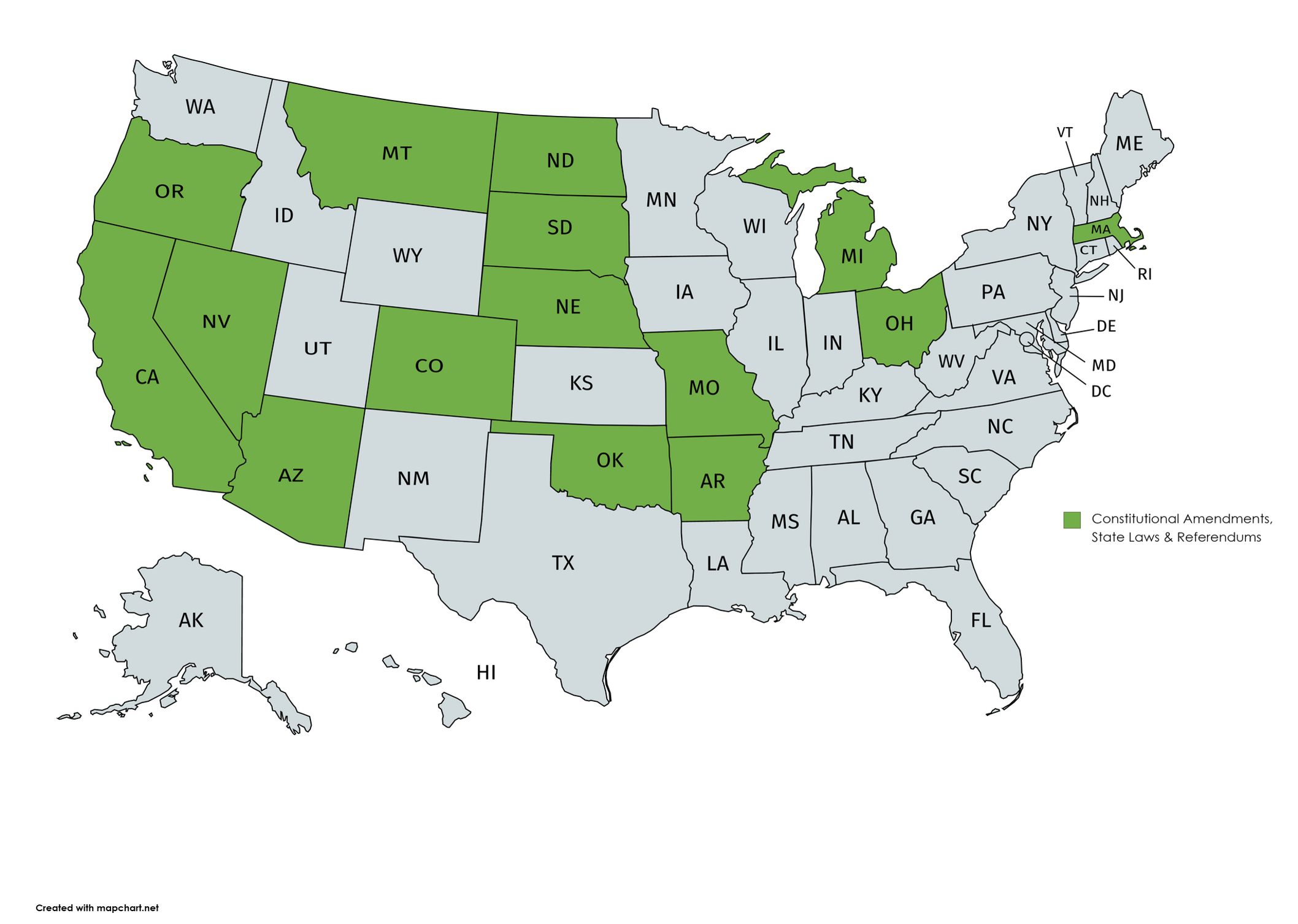Posts
Contact
Kristin Higgins
Public Policy Center
Phone: 501-671-2160
Email: khiggins@uada.edu
University of Arkansas System Division of Agriculture
Cooperative Extension Service
2301 S. University Avenue
Little Rock, AR 72204
Arkansas Only Southern State with Robust Direct Democracy
More than 100 years ago Arkansas joined several western and northern states in adopting the citizen initiative process, which gave citizens the ability to propose new laws to fellow voters on the ballot.
Fast forward to today and Arkansas is one of 15 states where citizens can propose a (1) constitutional amendment, (2) state law, and (3) a referendum on a recent law passed by the legislature. Many states have an initiative process but limit the type of proposal citizens can make.
Despite Arkansas voters rejecting a proposed constitutional amendment in 2020 that would have changed the citizen initiative process, Arkansas legislators in 2023 passed Act 236 to increase the number of counties where campaigns had to collect voter signatures. The state is defending this law in court.
Ballot issue groups in Arkansas must now collect voter signatures from at least 50 counties across the state—up from 15 counties. Petitions must include voter signatures equaling:
- 6% for referendums
- 8% for state laws
- 10% for constitutional amendments
In each of those 50 counties, the petition must have signatures from 5% of the number of people who voted for governor in that county's last election.
Where are these 15 states?

source: http://www.iandrinstitute.org/states.cfm
States allowing amendments, state laws and referendums
Arizona (1911)
Arkansas (1910/1920/1925*)
California (1911)
Colorado (1912)
Massachusetts (1918)
Michigan (1908)
Missouri (1908)
Montana (1904)
Nebraska (1912)
Nevada (1905)
North Dakota (1914)
Ohio (1912)
Oklahoma (1907)
Oregon (1902)
South Dakota (1898)
*The ability for Arkansas citizens to petition voters was first put in place in 1910, though it wasn’t cemented in law until 1925 when the Arkansas Supreme Court upheld Amendment 7 of 1920 that spelled out the citizen initiative process that is in the Constitution today.
Want to know more? See this 2023 analysis from the Public Policy Center comparing the different requirements for citizen initiatives across the United States. The National Conference of State Legislatures also breaks down the differences between states and their processes.